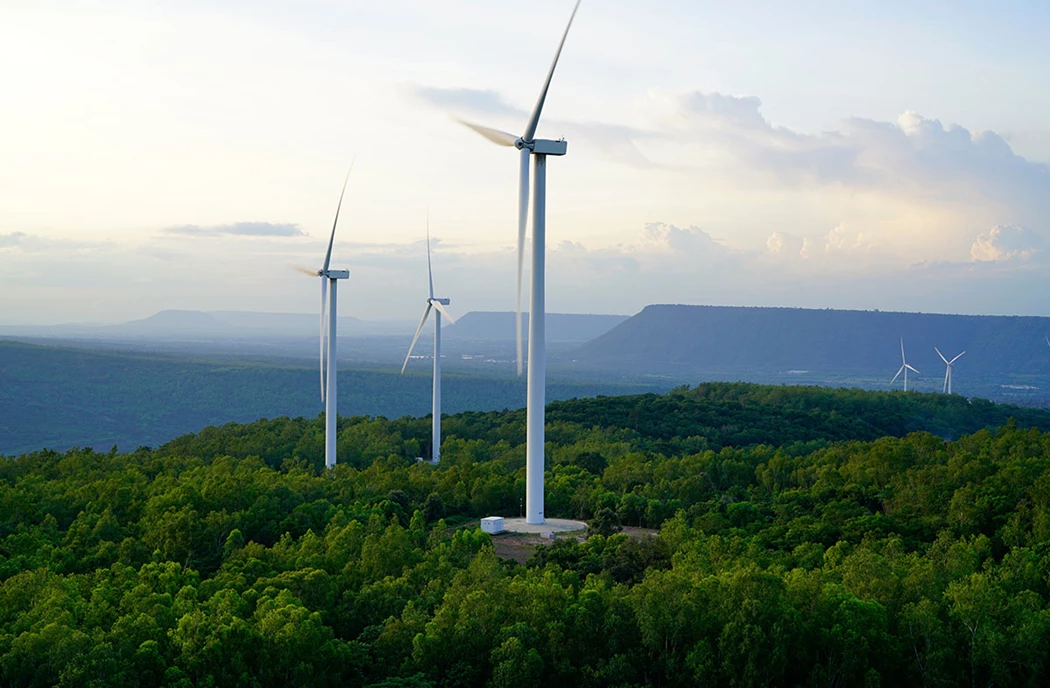Vietnam Set to Expand Graft Probe Into Misuse of Key Energy Fund
(Bloomberg) -- Vietnam is preparing to widen a probe into alleged corruption among officials connected to the energy sector as the Southeast Asian country seeks to gain control over a worsening power crisis, according to officials with knowledge of the matter.
An investigation that has ensnared senior trade officials in recent weeks over accusations of bribery, poor oversight and other abuses of power is set to be extended to the alleged mishandling of the nation’s nearly $300 million petroleum price stabilization fund, according to two people familiar with the situation.
If expanded, the probe will involve other officials from the finance and trade ministries and some related companies. It’s likely to lead to additional arrests, according to the two people who asked not to be identified because the issue isn’t public.
Vietnam’s years-long anti-graft push shows no signs of slowing as Communist Party chief Nguyen Phu Trong seeks to clean up the more than $400 billion economy and strengthen his party’s grip over a nation of 100 million people. At stake is also Vietnam’s increasing appeal — amid shifting supply chains and US-China tensions — as a destination for foreign investment, including for suppliers to companies like Apple Inc.
Authorities last week said they detained Hoang Quoc Vuong, a former deputy trade minister and ex-chairman of Vietnam Oil and Gas Group, also known as PetroVietnam, and criticized the ministry for lack of oversight and failing to detect violations by petroleum traders.
Representatives from PetroVietnam didn’t answer multiple calls seeking comment. Vuong couldn’t be reached for comment.
This week, plans were revealed to try a prominent Vietnamese businesswoman and 85 others in a $12.5 billion embezzlement case that’s become the centerpiece of the state’s crackdown. But the widening effort also signals a growing awareness among top officials about a bleak energy picture that threatens to leave Vietnam’s critical industrial base without sufficient power.
The global energy crisis, triggered by Russia’s 2022 invasion of Ukraine, prompted fuel shortages across many emerging economies. Vietnam grappled with 23 days of energy shortages that prompted blackouts last year due to a crunch in coal supplies. Blistering temperatures also reduced water reserves at hydropower plants and sent electricity demand surging.
The impact of that shortfall hit critical industrial parks in the country’s northern provinces. Vietnam Electricity Group said that ensuring sufficient power supply will remain a challenge in 2024 given a continuing imbalance in supply and demand as well as risks when it comes to getting fuel to power plants.
Meanwhile, Vietnam’s fuel costs are poised to increase as it shifts its grid to pricier — and sometimes unreliable — liquefied natural gas. The nation began importing the super-chilled fuel last year, and aims for LNG to make up roughly 15% of its power mix by 2030, according to energy plans.
Solar Projects
The nation’s embattled energy market highlights the difficulties Vietnam needs to overcome in order to cement its role as a reliable base for global manufacturers.
The Government Inspectorate of Vietnam in late December said the trade ministry approved more solar projects than planned for in the nation’s recent power development plan, underscoring how projects with no legal basis were being approved in more than a dozen provinces.
According to the officials, 168 solar projects, with a total capacity of 14,707 megawatts, were given a green-light between 2016 and 2020. That’s about 17 times higher than the total solar capacity approved in a national power plan, according to the government’s website.
The latest development would expand the investigations into Vietnam’s petroleum price stabilization fund. The account, which the finance ministry said held 7.06 trillion dong ($288 million) as of Sept. 30, is one of the tools used by the government to protect the economy against inflationary pressures by stabilizing domestic gas market price fluctuations.
Authorities had previously highlighted violations in the fund covering the period from January 2017 to April 2018, while VnExpress reported that in 2022, fuel shortages led to the closure of some gas stations.
But in Vietnam’s rigid political system, where major decisions require review from the Politburo and a central executive committee, the widening anti-graft probe could also paralyze decision-making needed to ensure electricity supplies meet the nation’s ballooning demands and ambitious green energy goals.
“If project delays persist for large-scale power projects, mainly fossil fuel power plants, there are risks of blackouts happening again,” said David Thoo, a power and renewables analyst at BMI Research.
©2024 Bloomberg L.P.
KEEPING THE ENERGY INDUSTRY CONNECTED
Subscribe to our newsletter and get the best of Energy Connects directly to your inbox each week.
By subscribing, you agree to the processing of your personal data by dmg events as described in the Privacy Policy.
More renewables news

GE Vernova to Power City-Sized Data Centers With Gas as AI Demand Soars

Longi Delays Solar Module Plant in China as Sector Struggles

Australia Picks BP, Neoen Projects in Biggest Renewables Tender

SSE Plans £22 Billion Investment to Bolster Scotland’s Grid

A Booming and Coal-Heavy Steel Sector Risks India’s Green Goals

bp and JERA join forces to create global offshore wind joint venture

Blackstone’s Data-Center Ambitions School a City on AI Power Strains

Chevron Is Cutting Low-Carbon Spending by 25% Amid Belt Tightening

Free Green Power in Sweden Is Crippling Its Wind Industry
















